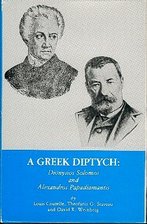(May 2, 2014)
Beloved youth leaders and representatives, Christ is risen!
“How happy human beings are when they are truly human.” (Maiandros)
The love of the risen Christ has today assembled us in Constantinople, the sacred see of the Mother Church, during this joyous paschal period when Orthodox Christians, as happy human beings, “celebrate the eternal Pascha,” “the great Pascha, the Pascha of the faithful.”
Therefore, we express and declare our joy, which increases with our paschal delight, because we see your radiant faces, which are already familiar and beloved to us from a long time ago, but also because we are meeting new friends, clergy and laity, that serve our youth in the eparchies of our Ecumenical Patriarchate throughout the world. We address our fervent paternal greeting to all of you, together with our Patriarchal wish that you always remain vibrant young men and women, continuing your service in directing the younger generation according to the commandments of the Lord’s Gospel, namely according to the apostolic exhortation “to promote whatever is true, whatever is honorable, whatever is just, whatever is pure, and whatever is beloved,” so that our young people may be “gracious and worthy of praise” (Phil. 4.8) and truly be “happy.”
We particularly thank you, dear friends, for responding to the invitation of the Mother Church in order to participate in this timely forum for an exchange of opinions and experiences. In you, we are grateful to the Hierarchs of the eparchies of the Throne, who honored the request of the Ecumenical Patriarchate to send leaders responsible for their respective Youth Offices in order to deliberate on the vital subject of ministering to our youth with a view to establishing a youth network with the blessing of the Ecumenical Patriarchate. Moreover, we welcome the representatives of the most holy Churches of the Throne, Cyprus, Greece and Albania, and we wish all of you a pleasant stay in our City as well as a productive fellowship among yourselves.
* * *
We have explored the structure of this forum, both personally and in cooperation with the appropriate Committee on Youth of our Patriarchate as well as with the Holy and Sacred Synod. This is because we acknowledge the struggle that all of you experience on a daily basis in order to provide a spiritual perspective to our youth within a society, which is increasingly oriented toward the worship of matter and denial of the soul. Within the “Babylonian furnace” of contemporary society, young people seek something more, something higher, namely communion with God and fulfillment of His saving commandments. In this respect, young people resemble the Three Children in the Bible who were cast into the furnace by king Nebuchadnezzar because they believed in the divine Creator of all things. Much like king Nebuchadnezzar then, modern powers demand self-worship through our consumer society, our fallen civilization, which seeks to replace God with ourselves. Unfortunately human beings are taught from early childhood to satisfy their selfish desires, believing that such satisfaction leads to genuine happiness.
In his commentary on the Book of Genesis, St. John Chrysostom observes that young people “only see the sweetness of the present and do not consider the painful consequences.” So we must, as he adds, “be concerned with teaching young people about virtue and moderation.” (On Genesis59, PG 54.519)
This is precisely the teaching of our Orthodox Church through the centuries and the witness of our Ecumenical Patriarchate. We believe that whoever desires to lead a Christian life must learn to surrender the fallen nature “with its passions and desires.” “But I say, walk by the Spirit, and do not gratify the desires of the flesh. For the desires of the flesh are against the Spirit.” (Gal. 5.16-17) This opposition to the desires of the flesh must be inspired as a decisive factor in the life of every young man and woman seeking to live in Christ.
Indeed, this opposition is precisely what virtue is about. “All human affairs are foreign to this life. It is only virtue that comprises the fullness of life,” as St. Gregory the Theologian teaches from experience. (Poem 31, PG 37.913)
* * *
Constantinople, and especially the Ecumenical Patriarchate, is a place and experience of virtue. All Orthodox Christians hope one day to visit this City and Mother Church. They want to become acquainted with its history, splendid monuments, and beauty. However, they do not perceive Constantinople and our Patriarchate as an admirable space that preserves byzantine civilization, a living museum of prominence, which transmits to us the glory of the past. They experience it as the Sacred Center that established doctrine, preserves and proclaims the true faith, and witnesses to the Orthodox ethos, namely virtue. For our Patriarchate and the witness of its teaching through the ages, we could easily repeat the words of St. Gregory the Theologian, who combined theology with poetry: “Virtue is found in the midst of evil, just as a rose is found among the wild thorns.” (Poem 2, PG 37.594)
* * *
One of the necessary prerequisites for a constructive ministry in the Church that we serve is surely an intense internal, spiritual and liturgical life. By this we mean “conversing face to face with God.” The spiritual life, which is a journey with the buried and risen Lord, is the mystical source from which every activity must spring, if we want our youth to experience the resurrection and not be held captive to the passions of the world. In brief we emphasize and underline the following: the resurrection is our joy and life, while being held captive to the passions of the world implies pain, suffering, and denial of life.
If byzantine Constantinople constituted an exceptional model of civilization, imbued with the values of the Gospel, it is not because Christians and clergy here built churches like Haghia Sophia, created frescos and mosaics, decorated manuscripts, opened schools, or carved remarkable works and miniatures. Rather, it is because they first sought to control their passions and to be filled by the Holy Spirit, thereby achieving the “kingdom of God” in their hearts and the mystical peace of the resurrection joy, which no technological progress or science can ever offer.
Thus, when we speak of the spiritual tradition, which all of us endeavor to preserve as laborers in the Church, we mean a living, mystical and sacramental remembrance of the lives of the Saints; we mean the happy human being of ancient Maiandros, namely the “great wound” of humanity that was healed by Christ with his resurrection from the dead (cf. the Troparion of Thomas Sunday), thereby rendering humanity truly happy.
It is the paschal and joyful tradition, which young people are called to preserve and continue as the future of our Church and society; it is not a static or fundamentalist, or individualistic tradition, but instead involves the transmission of authentic life in Jesus Christ.
Fanaticism and fundamentalism are concepts foreign to our tradition and the body of the Orthodox Church. Today, unfortunately we witness expressions of such fundamentalist phenomena, both nationalistic and religious throughout the world and especially, more recently in the Middle East, where they have cost many lives and resulted in the displacement of many Christians in regions where the message of Christian salvation was first proclaimed. So we are all obliged, and especially young people, to become aware of these phenomena, as well as to do everything that we can to support our Christian brothers and sisters, who are still under the threat of persecution and terrorism.
* * *
It is with great interest and pleasure that we follow the progress of your work and expression of your love for the Church and our Patriarchate. We whole-heartedly pray that this forum, which opens today, will become an opportunity for better and greater cooperation among Orthodox youth leaders. We pray that it will serve as an occasion for fruitful deliberation and exchange of opinions so that you may cultivate a common experience, a common mindset, an Orthodox ethos for young people, in order that all of us, young and old, may continue the spirit of the holy Fathers of our Orthodox tradition.
When we embrace and cultivate this common mindset of the Fathers, as described by St. John Chrysostom, St. Gregory the Theologian and all the choir of holy Fathers, we shall be able to perceive the presence of God, sharing a united voice and common bond, which will remain unaffected by geographical distance as well as linguistic, cultural, national, and social differences.
Beloved children in the Lord, this is the sacred challenge that lies before you, namely the ministry of teaching young people to trust God. As we say in the Divine Liturgy: “Let us commit our whole life to Christ our God.” Your work aims at transmitting this experience to young people so that they learn to love and not merely to be loved.
It is preferable for us to know God and love our youth, rather than to speak about God to our youth. We must teach them to live in unceasing communion with the saints so that they can transform this world into heaven.
Of great importance for our young people is the presence and direction of a spiritual father. This mystery may be experienced with any spiritual father, but it is especially meaningful when the spiritual father is someone exposed to divine matters and endowed with the necessary skills to guide the faithful. Spiritual fatherhood is the harmonious synergy between the young believer, who is establishing the spiritual foundations of his or her life, and the spiritual father, who seeks to educate the freedom and cultivate the personality of his spiritual child.
Being a disciple of a spiritual father does not imply – and should never imply – a personality cult, but rather spiritual growth through humility and courage. A genuine spiritual father will respect the personality of his spiritual child, never seeking or desiring to assume decisions on his or her behalf. The initiative for the journey toward God belongs to the spiritual child. The spiritual father is merely a support and model in this journey.
Dear leaders and representatives of the Youth Offices in the holy Metropolises of our Ecumenical Patriarchate,
Beyond these reflections pertaining to the challenges facing our young people today and the way of responding to these effectively, we would like to convey some personal thoughts and admonitions, which might assist you in your sacred ministry by enabling you to discern the signs of our times.
The purpose of this forum is, as we have already noted, to exchange ideas for a more efficient organization and contribution of the Youth Offices throughout the world. As we know, the advancement of our faithful workers in the vineyard of the Lord and members of the Church greatly depends on the success and education of our young people. After all, the enemy of the Church tries to entrap young people in particular, inasmuch as they are still at a formative stage in their life, seeking to sidetrack them toward indifference in their faith and evil in general. So it is surely our obligation and responsibility to preserve the innate purity of the motives and hearts of our young people, endeavoring to restore them from the numerous destructive pathways, to which the sirens of the world loudly and strongly attract them.
Consequently, our forum has a specific and fundamental task. It must lay down basic directions, on the basis of which our Youth Offices can move and act in the years to come. Of course, we will need to discuss these directions periodically and make necessary revisions based on our experience.
The means available to us for the most part are well known. Word of mouth, which we use in various assemblies, but which has the disadvantage of being heard by our relatively limited number of young people, who attend these gatherings. In addition to this, we have the possibility of expressing the spoken word through radio as well as the spoken and written word through the internet. All of us have naturally considered possible methods and strategies for disseminating this spoken and written word, particularly in light of the fact that so many young people have such little time and cannot easily attend such gatherings.
The most appropriate use of the written and printed word addressed to young people must also be the subject of special study. Perhaps the translation of successful youth publications into other languages may prove necessary and beneficial, so long as their contents are deemed to be attractive and informative for young people.
The characteristic features of our Lord Jesus Christ and His Church must be highlighted: namely love, forgiveness, repentance as joyful purification, and freedom from depression and stress. For the image of the repentant believer is sometimes described as sorrowful, whereas in truth it is joyful.
The participation of young men and women in our Church’s worship is critical, and we must try to organize liturgical services in places and times that facilitate the attendance of young people.
We feel that it would be very beneficial to organize exchanges between young people from various Metropolises or Churches because positive friendships and favorable memories contribute to the preservation and cultivation of spiritual fellowship.
Moreover, organizing camps and hospitality in appropriate locations, as well as enriching programs with spiritual content, are also very helpful.
Furthermore, any appropriate and applicable idea, including the exchange of pertinent initiatives, is always fruitful inasmuch as it prevents negative programs and enriches more effective activities.
All these things presuppose a closer communication and cooperation among the youth leaders of our holy Metropolises in order to avoid hasty initiatives, thereby permitting a better and balanced assessment of activities.
Our Church adopts every available means in order to converse with its faithful and convey to them the joyful message of the Gospel. This is why it has traditionally used both the spoken and written word, as well as iconography, architecture, symbols and music.
Our age has revealed yet another means of communication, namely the internet. The internet offers many and diverse possibilities, particularly in the area of social networks, which can also prove advantageous. Of course we need to be very careful and selective as to the way and ethos of these communications, which like all other media conceal many dangers.
The fact that there are many harmful books in circulation does not mean that the Church should refrain from publishing edifying books. At the same time, the fact that social networks are abused by people promoting falsehood and deception in order to mislead young people does not mean that the Church should not use these same networks. On the contrary, the Church must use these networks as widely as possible in order to facilitate young people in search of ways to fulfill their spiritual interests. The time that a spiritual father will dedicate for the sake of communicating with young people through the internet and social media, especially if they are separated by great geographical distance, can prove very useful and effective, so long as he is speaking in a godly way and not promoting his own ideas. The internet also offers the possibility of video-conferencing among young people and youth leaders on a regular basis for an exchange of ideas and without great expense in time and money. On this point we should emphasize that, while the internet offers numerous technological possibilities, including face to face conversation, it should never replace personal communication. Otherwise, young people risk being trapped in a virtual reality and isolated from life’s actual reality.
In all that we have said, we have marginally touched on certain issues, which possibly concern the youth leaders of our Church. There are surely many other issues, which may and should concern you. Indeed, perhaps circumstances are mature enough for the realization of a permanent association among the youth leaders of the holy Metropolises of our Ecumenical Throne, similar to the successful model of the responsible leaders of our Church in the field of pastoral health.
We do not need to tire you any longer. Our allusions and your experience will surely bring to the surface many other interesting matters related to nurturing young people. With these simple thoughts and paternal injunctions, we wish you every success in the proceedings of our forum. May the risen Lord bless you abundantly so that your discussions will prove constructive and contribute to the better coordination of our youth ministry, which our church offers to Orthodox young people of the Ecumenical Patriarchate.
We pray for your divine illumination in this forum and for spiritual success of your discussions and conclusions, so that you may practice your very responsible and sacred duties more efficiently.
May the grace and rich mercy of our Lord Jesus Christ, who rose from the dead, abolishing human corruption and death through His resurrection, dwell in your hearts and minds, directing your steps to every good deed that is pleasing to God. Amen.


































Δεν υπάρχουν σχόλια:
Δημοσίευση σχολίου